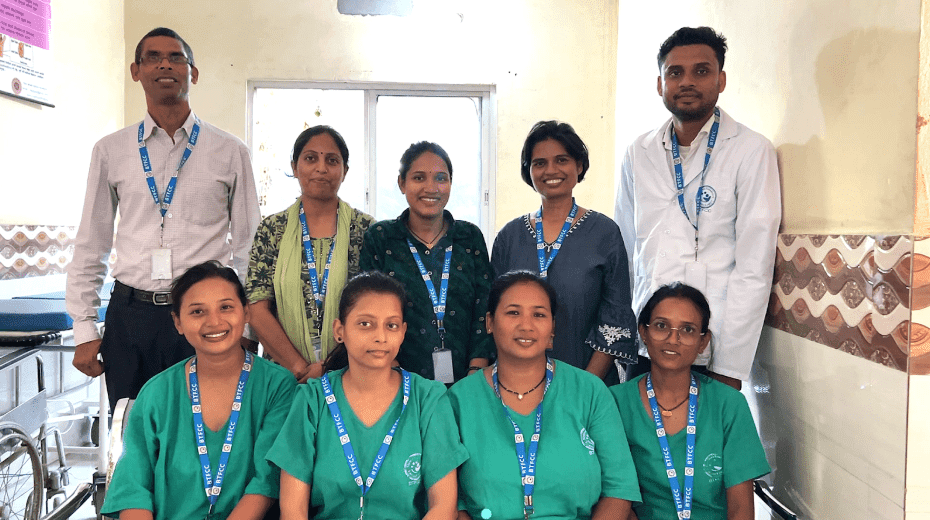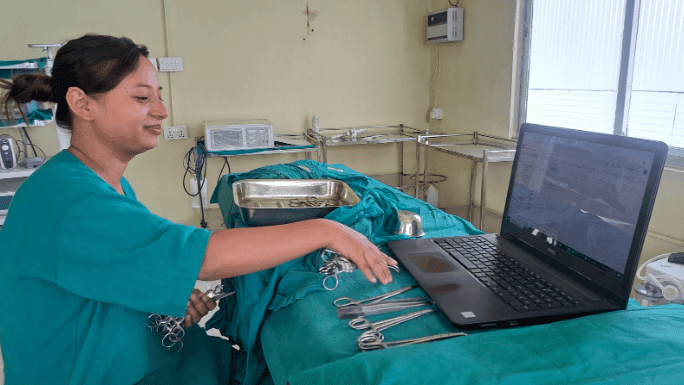Oncology Nursing Month: Honoring Those Who Care Beyond Limits

Author
Binaytara Team
Oncology Nursing Month is celebrated every May to honor the vital role that oncology nurses play in caring for cancer patients. Nurses are often the first point of contact for patients and serve as a consistent presence throughout their care journey. Their work, marked by compassion, skill, and emotional endurance, deserves recognition not only this month but every single day.
The History and Meaning Behind Oncology Nursing Month
What began as a one-day initiative by the Oncology Nursing Society (ONS) has since evolved into a month-long celebration. This growth reflects the expanding acknowledgment of the deeply humane commitment that nurses bring to their work. The 2025 theme, “Caring Beyond Limits,” embodies the boundless compassion and dedication that oncology nurses demonstrate in advocating for and supporting patients, often going well beyond their expected duties.
The Role of Oncology Nurses in Cancer Care
Oncology nurses manage a wide range of responsibilities, including conducting patient assessments, administering treatments, educating patients and families, and offering emotional support. They are essential members of care teams, helping develop and implement personalized care plans. However, the nature of oncology care, frequently involving emotionally intense and complex cases, requires a high level of emotional resilience and fortitude.
Burnout in Oncology Nursing: Causes and Consequences
Many oncology nurses face significant challenges related to burnout and work-life balance. These challenges stem from factors such as high workload demands, emotionally taxing patient care, and organizational issues like staffing shortages and unsupportive workplace cultures. Burnout in this context often manifests as emotional exhaustion, depersonalization, and a reduced sense of personal accomplishment, all of which can negatively affect nurses’ well-being, job satisfaction, and the quality of care they provide.
Addressing these challenges requires a shared responsibility between individual nurses and healthcare institutions. Examples of proposed solutions to alleviate these challenges include cultivating a supportive and respectful workplace culture, ensuring adequate staffing levels, offering flexible scheduling, providing access to mental health services, and promoting professional development and self-care practices. These strategies not only reduce burnout but also help sustain the oncology nursing workforce and improve patient outcomes.
Strengthening the Global Oncology Nursing Workforce
The aforementioned challenges are even more pronounced in low- and middle-income countries (LMICs), where under-resourced healthcare systems further strain oncology nurses. Common systemic issues include workforce shortages, lack of access to specialized oncology training, limited professional recognition, and the migration of skilled nurses to high-income countries.
Addressing these barriers calls for expanding accredited oncology nursing education programs, increasing the number of nursing schools, and enhancing oncology-related curricula. International collaborations can help fill faculty gaps, while clear career pathways and certification programs support retention and professional growth.
Additionally, public awareness campaigns can help reduce stigma and misconceptions surrounding cancer and the nursing profession. Supportive workplace environments and strong policy frameworks at national and international levels are essential to ensure sustainable funding, equitable recruitment, and the inclusion of oncology nurses in leadership roles. These investments are critical to strengthening the global oncology nursing workforce and improving cancer care outcomes around the world.
Honoring Oncology Nurses: The Heart of Cancer Care
Oncology nurses are an important bridge between patients, families, cancer care teams, and the broader community. They take the time to understand each patient and family’s unique situation, providing supportive care early, connecting people with resources to improve quality of life, and encouraging healthy habits for the long term. Despite the challenges, oncology nurses continue to show up every day with compassion, strength, and the courage to guide patients through the complexities of cancer care.
This year, we are spotlighting one of our volunteers, Judy Delismon, an oncology nurse whose work reaches beyond borders. Judy’s dedication to nursing extends from her home in Washington State all the way to Janakpur, Nepal, connecting healthcare systems and responding to the unique needs of patients in both regions.

Judy Delismon, MN, RN, OCN
A lifelong Seattle resident and oncology nurse for nearly three decades, Judy began her career at the University of Washington Medical Center in the 1990s. She has since worked with hematology and oncology patients in both inpatient and outpatient settings, including at Fred Hutchinson Cancer Center and Swedish.
Most of her career has been devoted to caring for cancer patients, a path shaped not only by professional calling but also by personal experience. Cancer has touched her own family, deepening her understanding and compassion. From the beginning, she felt a powerful connection to oncology patients and their families, something she says has stayed with her through the years.
In recognition of her incredible work, Judy was honored with the 2025 Binaytara Volunteer of the Year Award at the recent Summit on Cancer Health Disparities in Seattle. Over the past few years, she has served as the lead nurse educator for Binaytara, regularly corresponding with nurses at the Binaytara Health Clinic in Nepal. She helps assess their needs and provides oncology-specific education on topics like breast cancer, cervical cancer, and sepsis. With support from other volunteer nurses, she has also facilitated virtual training sessions to help build local capacity.
To all the oncology nurses out there, we thank you. Your dedication makes a difference in every life you touch.
Join the Movement to Support Oncology Nurse Training in Nepal

An operation theatre nurse managing a procedure at the Binaytara Health Clinic
Binaytara is committed to educating the next generation of nurses who deliver high-quality care to cancer patients. At our Binaytara Health Clinic in Janakpur, Nepal, we are actively working to strengthen nursing education and promote oncology nursing specialties. To achieve this, we need to send our nurses to train at nationally recognized cancer centers, where they can learn best practices and return equipped to provide the highest level of care.
We recently organized a mission trip to Nepal to help raise funds for the Binaytara Nurse Training Program. Our fundraising goal of $10,000 will sponsor full training for one oncology nurse. So far, Bikash Sah completed nurse training at TATA Memorial Hospital in India earlier this year. Please consider donating to help grow our nursing program and improve the delivery of cancer care in Janakpur, Nepal. Your support will have a lasting impact on strengthening the global oncology nursing workforce.